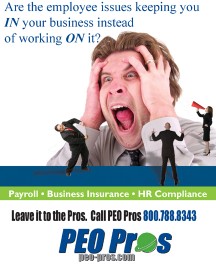Workers’ Comp Exemptions – Worthless?
 Is it worth it to go get a workers’ comp exemption from the state?
Is it worth it to go get a workers’ comp exemption from the state?
“Oh I don’t need comp, I’m exempt.” Have you heard this before?
Perhaps it is best to start with a few definitions to clear things up.
In Florida, Every employer is subject to the workers’ compensation act, regardless of how many employees they have1. The statute more or less states that an employer shall cover the expenses and lost time of any employee hurt on the job.2
An exemption from outside coverage is available from several states when there are certain conditions met, such as 1 employee or less, all employees are also 25% or more owners, etc. This exemption must be applied for, paid for and filed with the state.3
There are no “automatic exemptions.” No one is “exempt” by default. The state must approve the exemption.
Once an employer has received such an exemption, he or she is making a promise to the state that they will pay for all workers’ compensation claims with their own funds. In a phrase, they are “self-insured.”
Some employers argue that being self-insured is enough, since a lawsuit will only proceed against an insurance company. Please be advised that lawyers are aware that most small business owners have other assets, such as homes, cars, retirement funds, children’s college funds, etc. Since some collect a percentage based on what is recovered, it can be profitable to pursue private assets.
Exemptions No Longer Being Honored
Add to this confusion that many larger contractors and municipalities are no longer accepting workers’ comp exemptions in lieu of an actual policy. They have found that lawyers have learned to pierce the veil of an exemption and perform what is known as “climbing the ladder” to the actual contractor in the case of a sub-contractor injury. Exemptions do not protect the contractors.
So is it worth the fee ($50 to $100 for “construction” business based on the state) and the application to get an exemption? A small business owner may consider getting comp coverage instead. There are many options available, including direct policies, “pay as you go” polices from payroll companies (even Paychex and ADP are offering this now) or even the more extensive liability coverage available from a PEO (formerly Employee Leasing Company).
It is true that initially it would appear that an exemption is indeed cheaper. But as is the case with all insurance, consider this: What if something happens? What if someone gets hurt? What if the OWNER gets hurt seriously? Loses a limb or loss of an organ? A properly written and paid workers’ compensation policy will pay for all medical expenses, legal fees and up to two-thirds of lost wages for as long as the injury is in effect.
Choices: It’s left up to the business owner.
The business owner has a decision to make, to run with an exemption or to have peace of mind through a somewhat more expensive workers’ comp policy.
If a small business owner wishes to know more about exemptions, their relative uses and other options available, please use the contact form below.
The authors of this article had assistance from the members of The PEO Message, a Facebook group used to communicate within the PEO and Workers’ Comp industry. Specifically, thanks go to Doug Lilak, Christopher Yarn, Chad Filley, and Jeffrey Rendel for their valued input.
Notes:
From Florida Statutes Chapter 440
1 440.03 Application.–Every employer and employee as defined in s. 440.02 shall be bound by the provisions of this chapter.
2 440.02 (16)(a) “Employer” means the state and all political subdivisions thereof, all public and quasi-public corporations therein, every person carrying on any employment, and the legal representative of a deceased person or the receiver or trustees of any person. “Employer” also includes employment agencies, employee leasing companies, and similar agents who provide employees to other persons. If the employer is a corporation, parties in actual control of the corporation, including, but not limited to, the president, officers who exercise broad corporate powers, directors, and all shareholders who directly or indirectly own a controlling interest in the corporation, are considered the employer for the purposes of ss. 440.105, 440.106, and 440.107.
3 440.05













